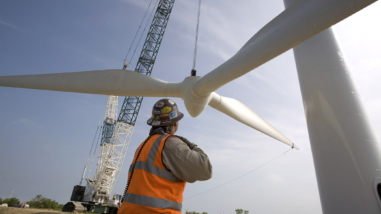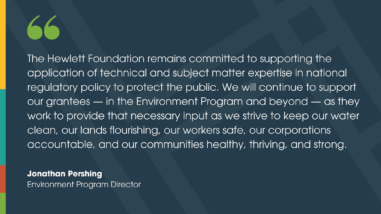Rhodium Group
For The Evaluation Of Tax Credit Incentives For Low And Zero Carbon Technologies
-
Amount$100,000
-
Program
-
Date Awarded7/12/2019
-
Term12.0 Months
-
Type of SupportProject
Overview
This grant will fund analysis on the fiscal impact of new clean energy tax credits. It will also review the fiscal impact of extending existing clean energy tax credits, which are a primary vehicle in the U.S. for promoting clean energy technology. The nonpartisan analysis will be broadly disseminated through reports on the Rhodium Group’s website and the published analysis will be shared with policymakers.
About the Grantee
Grantee Website
www.rhg.com
Address
5 Columbus Circle, Suite 1801, New York, NY, 10019, United States
Grants to this Grantee
for a clean energy investment tracker
Rhodium Group is an independent research provider, combining economic data and policy insight to analyze global trends. Through this grant, Rhodium Group, working with scholars at MIT, will help develop and maintain a comprehensive, independent, publicly available tracking system for new investments supported by the climate, energy, and infrastructure legislation passed by the U.S. Congress. Data will be provided on a quarterly basis, and disaggregated by sector and by geography. No such system currently exists. It will enable a more accurate assessment of the efficacy of the legislation and associated policy. (Substrategy: U.S. National Policy)
for China’s low-carbon transition
This grant is to support Rhodium Group to strengthen economic analysis of China’s low-carbon transition. Given the low-carbon agenda’s dominant role in China’s political space, and China’s pivotal point during the current economic slowdown, Rhodium Group will use this grant to continue a multiyear initiative to reconcile a conventional growth policy, necessary for the transition to China’s low-carbon economy future. (Substrategy: China National Policy)
for accelerating the European energy transition
Rhodium Group will provide objective research and analysis to inform the public debate about policies, in both Europe and the U.S., that seek to reduce European reliance on natural gas imports while meeting climate change goals. (Substrategy: Electrification)



